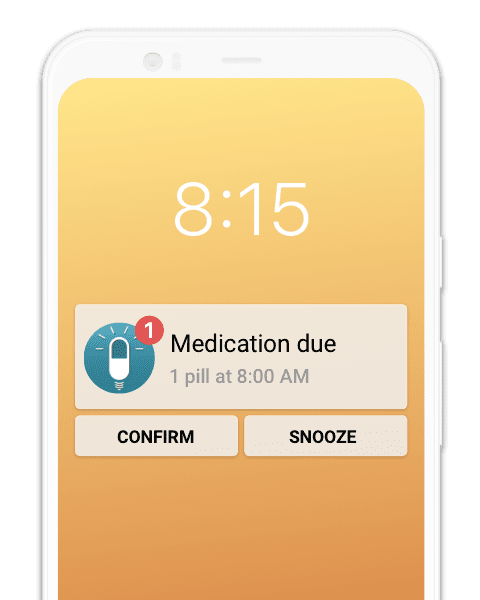In Multiple Sclerosis, pain can affect different places in your body. It is a disease that attacks your brain, spinal cord, and nerves. Common pain that MS patients experience:
- Damage to the neurons in your brain and spine
- Aches in your bones, joints, and muscles
- Lots of things affect what you feel, including how long you’ve had MS, your age, and how active you are.
Naturally, MS symptoms are subjective to every individual and if your MS treatment isn’t giving you the full relief you desire, you may be curious whether medical marijuana might help and alleviate your symptoms.
Though cannabis cannot directly treat the causes of the disease (ultimately, it cannot cure them), some people argue that it has the potential to treat the symptoms and act as a therapeutic agent.
Note: Cannabis is not prescribed for everyone with MS. In fact, it is only used in well-founded individual cases. Cannabis products can be well-tolerated among individuals. However, adverse effects may occur, and cannabis may not be suitable for everyone.
How can medical cannabis help?
The plant contains several chemicals, all of which have different effects on the body, including chemicals that can be used for medicinal purposes. These chemicals are known as "cannabinoids", of which there are more than 500 ingredients, including proteins, amino acids, sugars, alcohol, colourings as well as essential oils.
There are many types of cannabis. Cannabis sativa and cannabis indica are popular, each of them varying regarding their ingredients. THC and the ingredient CBD (cannabidiol) are widely acknowledged for having medicinal benefits.
Tetrahydrocannabinol (THC) is the most well-known cannabinoid in cannabis. It is known for relaxing muscles, stimulating appetites, relieving pain, and soothing ability.
Another compound of cannabis is called cannabidiol (CBD), which is known largely for anti-inflammatory, analgesic, and antidepressant effects. CBD is known for alleviating pain and spasticity and is proven to help ease stiffness and muscle spasms that are common with MS. It is also most commonly used as an aid to epileptic seizures and mental health conditions such as anxiety.
Disclaimer: People should check on their local laws before using cannabis or cannabis products.
In what forms are medical cannabis available for MS?
Currently, medical cannabis is not available without a prescription. Depending on legality, professionals may suggest different types of cannabis medications. In the UK, very few people are likely to get a prescription for medical cannabis.
According to the NHS website Medical cannabis and cannabis oils , medical cannabis is only likely to be prescribed for the following conditions:
- Children and adults with rare, severe forms of epilepsy
- Adults with vomiting or nausea caused by chemotherapy
- People with muscle stiffness and spasms caused by MS
The most common medical cannabis prescribed for MS patients is Nabiximols (Sativex). Nabiximols (Sativex) is a cannabis-based medicine that is sprayed into the mouth and was the first cannabis-based medicine to be licensed in the UK, however, remains unapproved in the US. The drug can be prescribed for the treatment of MS-related spasticity.
Some cannabis-based products are available to buy without a prescription, one popular product being ‘CBD oil’ which are available to buy in health stores.
Users of CBD oil state that it helped reduce main MS symptoms such as pain and spasticity, as well as symptoms such as fatigue, anxiety, and urinary issues, but more studies need to be taken for this to be confirmed.
How cannabis works in human bodies
After cannabis is consumed, the cannabinoids attach to the CB1 receptors (these receptors regulate pain sensation’s, memory, behaviour, appetite) and CB2 receptors (these receptors manage the immune system, bone health, nerve functions). Depending on which receptor is activated, the effects on an individual will differ.
Individuals with multiple sclerosis can experience an increased release of substances such as Gaba, which is slowed down by the intake of endocannabinoids: the sedation of Gaba can alleviate the spasticity.
Is medical cannabis safe?
With prescribed medical treatment cannabis, the potential for addiction or harmful side effects is low. Nevertheless, there are factors to consider when taking it:
- The drug affects your ability to react. There is a driving ban under the influence of cannabis. Even after the effects have worn off, traces of cannabis can be detectable in your body. If you are asked to take a blood test by the police and have a positive blood test, ensure you have a prescription confirmation from your doctor with you
- Importing cannabis-containing products abroad are generally prohibited. Always check the laws of the country you are travelling to before arriving.
- Cannabis use is widely known for smoking - for health reasons, however, you should avoid smoking and instead ingest the medicine through food or inhale it as vapour through a vaporizer
Note that cannabis, though calming and pain-relieving, may cause adverse side effects such as:
- Restlessness, fear, panic and negative mood
- Anxiety, disorder of concentration (more commonly found with THC users)
- Disorientation, confusion
- Cannabis use can increase the risk of psychosis, including schizophrenia.
The above information is not a recommendation, and you should not attempt to self-medicate any conditions based on it. There is still a lot of research to be done on medical cannabis and its effects, and this article can only reflect what we know so far. If you plan to take any medicinal cannabis, you should consult with your doctor first.
Here are some other articles we think you might enjoy:



